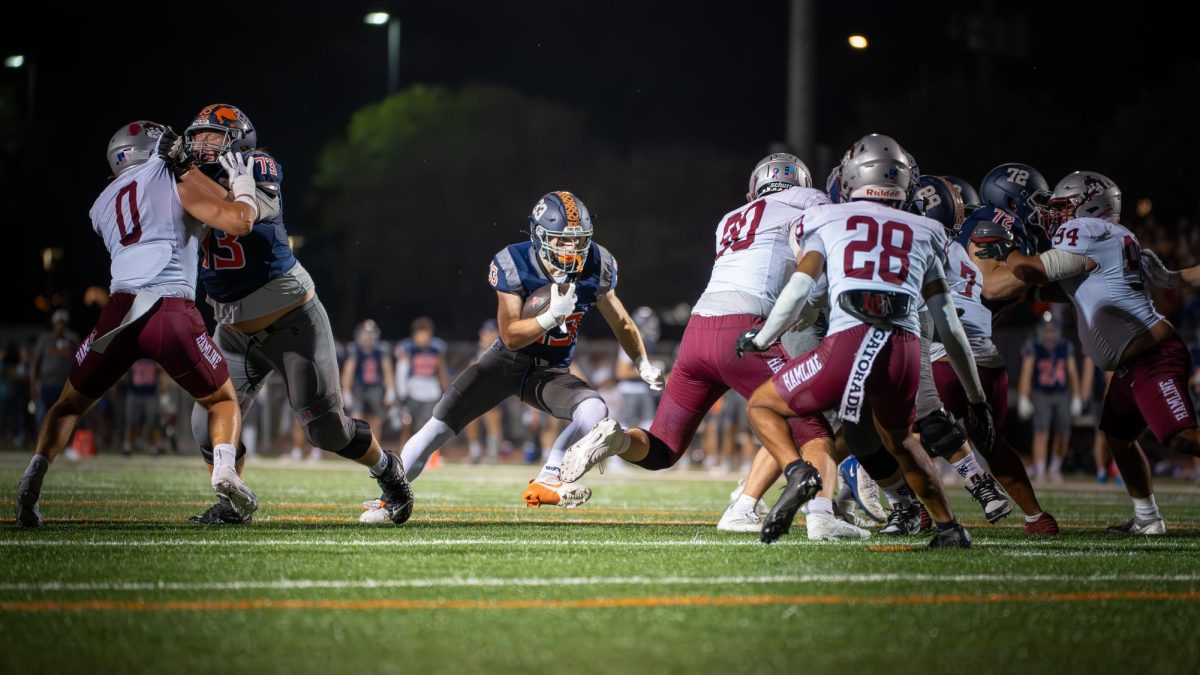Collegiate athletics is a business. It is a world unquestionably and unfortunately dominated by television deals, corporate sponsorships, ticket sales and prize money.
For many Division I schools, athletics is the chief source of revenue and publicity, so it isn’t surprising that they put all their eggs in that basket. They build multi-million dollar stadiums, hire multi-million dollar coaches, and may one day pay their players, all in pursuit of the most lucrative bottom line.
Sometimes it works in the opposite direction. Athletics make up such an enormous part of a school’s finances that, if a specific program is financially unstable or corrupt, the best course of action may be to terminate it.
With the financial well-being of the entire institution at stake, football may not seem so paramount. Now that the University of Alabama-Birmingham has decided to do away with its football program after deeming it financially unsustainable, many people will understand. It is, after all, a business.
But collegiate athletics is no normal business. It is inherently personal and emotional. Fans become intimately attached to their players in a way that never happens with professionals. It is the spirit and passion of college athletes which separates them from the pros. They play for nothing other than pride and the name across their chest.
It is that passion that makes college sports so special, and makes it so painful when they are taken away. It is our love of that passion that makes us mourn the loss of the University of Alabama-Birmingham football program.
UAB is by no means a football school. In fact, it is by no means particularly competitive in any sport. Basketball fans remember the Blazers fondly as a cinderella story, defeating Washington and then Kentucky in the 2004 NCAA Tournament to reach the Sweet Sixteen, where they lost to Kansas. That same year, the football team made it to the Hawaii Bowl, their first and only bowl appearance in school history.
Beyond that, there isn’t much to write home about. It is a school overshadowed in its own state by titans Alabama and Auburn. It is a school consistently near the bottom of one of the least competitive conferences in Division I sports. It doesn’t even have an on-campus football stadium. It is a school that shouldn’t matter. But it matters.
We care about UAB because it embodies what we really love about college sports: they are the ultimate underdog. These players aren’t preparing for lucrative professional careers; football will end for them after they leave campus for the last time.
They play for their teammates, for their school, and for the love of the game. They play only for all the right reasons.
That’s what college athletics is all about. It is about a football program that is the pride and joy of a city, regardless of how many games the team loses. It’s about 26-year-old senior tight end Tristan Henderson, a veteran of the Iraq war, who went back to school after his last tour of duty to get an education and play the game he loves.
Henderson’s name began popping up all over the internet Wednesday, after a video of him speaking to his team and to UAB president Ray Watts went viral. His passion and pain are evident, tears streaming down his face, as he talks about telling his young son that his father can’t play football anymore. He berates Watts directly for focusing only on the numbers instead of the futures of the players who no longer have a home at UAB. After commanding the attention of everyone in the room for a few minutes, Henderson walks to the back of the room to his beloved coach, Bill Clark, to cry into his shoulder.
Still, the financial realities facing UAB are undeniable. As revenues in college football skyrocket, so do expenses, and small teams in small markets often end up seeing only the expense-side changes.
Over the next five years, the UAB athletic department estimated that it would have to spend an extra $49 million on football on top of the disproportionate amount of its budget that already allocated to it annually.
Football at UAB, the members of the athletics department claim, will never be profitable for the university; they are better off scrapping the program altogether to focus resources on more promising teams. Looking solely at the numbers, they’re right.
The numbers, however, do not capture the full scope of the issue. The spirit of the city of Birmingham, the futures of 175 players and coaches, and Tristan Henderson’s three-year-old son all deserve to be considered.
They are what makes sport meaningful; corporate endorsements and television contracts pale in comparison. When we value college athletics only as a moneymaking machine instead of as the powerful display of will, unity, and passion that it truly is, we are lost. Sports culture deserves better.







Harry Wright • Sep 11, 2019 at 12:49 pm
I would like to thank you for the efforts you have put in writing this blog. I am hoping the same high-grade website post from you in the future as well. In fact your creative writing skills has encouraged me to get my own blog going now. Really blogging is spreading its wings and growing fast. Your write up is a great example.
Jasmine Parr • Sep 10, 2019 at 7:14 am
Hi! I could have sworn I’ve visited this web site before but after going through some of the posts I realized it’s new to me. Anyways, I’m definitely pleased I found it and I’ll be book-marking it and checking back often!
Jonathan May • Sep 6, 2019 at 10:36 pm
I have realized that over the course of creating a relationship with real estate managers, you’ll be able to come to understand that, in every single real estate financial transaction, a commission rate is paid. Finally, FSBO sellers never “save” the commission rate. Rather, they try to win the commission by simply doing a strong agent’s job. In the process, they commit their money in addition to time to accomplish, as best they can, the tasks of an broker. Those obligations include getting known the home by means of marketing, presenting the home to buyers, building a sense of buyer desperation in order to trigger an offer, arranging home inspections, managing qualification assessments with the bank, supervising maintenance tasks, and aiding the closing of the deal.